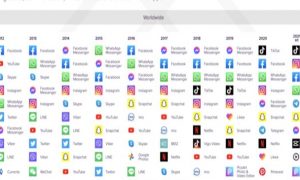Knowing which way you lean on the extraversion scale can make a big difference in how you run your business — and how you live your life.
Are you an introvert or an extrovert?
It took me years to figure out the right answer to that question. For most of my life, I considered myself an extrovert. People told me I was a good communicator, I enjoyed spending time with others, and I was a pretty outgoing person. But once I started learning more about what extroversion (or extraversion) and introversion truly are, I came to a key realization:
The more I considered this, the more it made sense. After all, I’m more comfortable listening than talking. I enjoy going to a movie theater or restaurant by myself. (My wife, who is an extrovert, cringes at even the thought of this.) And after spending time with others, even those I’m close to, I need lots of time to recharge and recover.
Learning that I leaned towards introversion was a great discovery for me. It helped me build self-awareness, a key element of emotional intelligence. And with that self-awareness came key insights into my personal needs, and the stress behaviors that result when I don’t fill them.
In the same way, knowing which way you lean on the scale of extraversion can make a big difference in how you run your business — and how you live your life.
So, how do you know if you’re truly an introvert or an extrovert?
It comes down to a single question.
(If you find this article helpful, and want to know other simple ways to build emotional intelligence, you might want to check out my course, Emotional Intelligence Rules for Life.)
What energizes you?
The psychologist Carl Jung first introduced the concepts of extrovert (extravert) and introvert in his study of personality in the 1920s.
The idea focused on where people derive energy: Introverts tend to focus inwards; they need quiet time with their own thoughts and feelings to recharge. In contrast, extroverts get energy from spending time with others.
Introversion and extroversion exist on a spectrum, meaning that, while most of us lean towards one end of the spectrum, we aren’t 100 percent introvert or extrovert. This complicates matters, and makes it challenging to identify what an introvert or extrovert “looks like.”
For example, you may have been taught that introverts appear quiet and shy, but that’s not true for everyone who leans towards introversion. Many of my own friends would be surprised that I see myself as an introvert because I appear to be outgoing and social. But what they don’t realize is that “outgoing-ness” takes a huge emotional toll on me and requires that I take plenty of time to recharge when I get back home.
Similarly, extroverts aren’t always loud or the life of the party; they may be on the quiet side. Again, it comes back to that key question: What energizes them? Although others may not see them as extroverts (and they may not even see themselves that way), the fact that they seek out social interactions, enjoy being in a crowd, and get energy from spending time with others shows they lean towards extroversion.
But you might be wondering, why does it matter? Why should I care about which end of the spectrum I lean towards?
There are many reasons; here are two.
Build self-awareness and manage your emotions.
If you’re like I was for all those years, you may misunderstand your own needs, limitations, and “stress behavior” triggers for years. In other words, you continue ending up in situations that cause you to become stressed and discouraged without even knowing it.
Even though I knew I needed time to recharge after spending time with others, it wasn’t until I worked with a personal coach that I fully acknowledged that I lean towards introversion. This new self-awareness helped me to more clearly identify my own needs, which led me to then develop strategies to meet those needs and better care for myself.
For entrepreneurs, solopreneurs, and other business owners, knowing which end of the spectrum you lean towards can help you manage your day and week. You can better identify which aspects of the business you want to focus on, what role you want to play, or where you personally want to focus your energy.
All of this is good for the health of your business. Even more so, it can save your own physical and mental health.
Build social awareness and manage your relationships.
By learning more about your own needs, limitations, and stress-behavior triggers, you’re more readily able understand those of others, therefore building social awareness. In time, you’ll learn how to deal with others more effectively in order to identify and satisfy their needs, too.
And that will help you create more value for your network and build stronger relationships — both of which will only help you and your business.
So remember: By asking figuring out whether you’re an introvert or an extrovert, you’re learning how to better understand and manage emotions. You’re building self and social awareness, which leads to higher emotional intelligence. That helps you to help yourself and to help others — which can lead to everyone becoming the best versions of themselves.
And it’s results like these that truly make it a question worth asking.













































